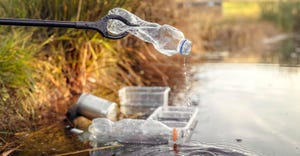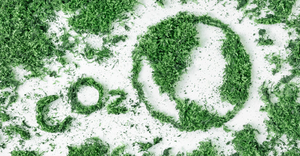Kwik Lok Joins U.S. Plastics Pact
December 3, 2020
YAKIMA, Wash. – Kwik Lok joined the U.S. Plastics Pact, a collaborative, solutions-driven initiative rooted in four ambitious goals intended to drive significant systems change by unifying diverse cross-sector approaches, setting a national strategy, and creating scalable solutions to create a path forward toward a circular economy for plastics in the United States by 2025. The first North American Pact of its kind, the U.S. Pact is a collaboration led by The Recycling Partnership, World Wildlife Fund (WWF), and Ellen MacArthur Foundation.
As a member of the U.S. Pact, Kwik Lok joins more than 70 brands, retailers, NGOs, and government agencies across the plastics value chain to bring one voice to U.S. packaging through coordinated initiatives and innovative solutions for rethinking products and business models.
“We have real challenges ahead, and it is up to all of us to find impactful, tangible solutions – that is why we are so excited to join a group of organizations committed to innovating in plastics reduction,” said Kwik Lok CEO Don Carrell. “We take the responsibility of creating new products and new technologies to reduce plastic’s impact on our environment seriously and look forward to working with others to improve the lives of our employees, customers and communities.
As part of the U.S. Plastics Pact, Kwik Lok has agreed to help deliver against the coalition’s four ambitious goals:
Define a list of packaging to be designated as problematic or unnecessary by 2021 and take measures to eliminate them by 2025.
By 2025, all plastic packaging is 100% reusable, recyclable, or compostable.
By 2025, undertake ambitious actions to effectively recycle or compost 50% of plastic packaging.
By 2025, the average recycled content or responsibly sourced bio-based content in plastic packaging will be 30%.
While the U.S. Pact follows the precedents set by the existing global network of Plastic Pacts, it is tailored to meet the unique needs and challenges of the U.S. market. The Pact reflects national priorities and realities, while still propelling the nation closer to other developed nations in its management of plastic waste.
“Together through the U.S. Plastics Pact, we will ignite system change to accelerate progress toward a circular economy,” says Emily Tipaldo, Executive Director of the U.S. Plastics Pact. “The U.S. Pact will mobilize systemwide change through support for upstream innovation and a coordinated national strategy. This unified framework will enable members to fast-track progress toward our ambitious 2025 sustainability goals. Members’ full participation will be vital to reaching our shared goals.”
As a member of the U.S. Pact, Kwik Lok is committed to transparent, annual reporting guided by WWF’s ReSource: Plastic Footprint Tracker, which will be used to document annual progress against the initiative’s four goals. Kwik Lok will establish a “roadmap” in 2021 to identify key milestones for achieving the U.S. targets and realizing a circular economy in which plastic never becomes waste.
To achieve its sustainability goals, Kwik Lok is working to reduce its portfolio-wide energy usage by 20% by 2025. To date, Kwik Lok has already saved more than 1 million kWh in energy since completing building renovations and operational upgrades in 2015 and has decreased energy consumption by 12%. Kwik Lok has also launched three sustainable product innovations, including its Eco-Lok product in 2019, formulated with a plant-based biopolymer called NuPlastiQ® that requires up to 20% fewer greenhouse gas emissions to produce than standard plastic bag closures.
###
About Kwik Lok
Founded in 1954, Kwik Lok is the global market leader in bag closures. The company produces billions of bag closures every year for baking and produce industries and the machinery for customers to print and apply closures. Kwik Lok brings over 66 years of expertise to deliver advanced engineering and trusted design. Kwik Lok is owned by third generation family leadership, with a vision to drive greater sustainability in the industry. Learn more at www.kwiklok.com.
About The Recycling Partnership
The Recycling Partnership is a national nonprofit organization that leverages corporate partner funding to transform recycling for good in states, cities, and communities nationwide. As the leading organization in the country that engages the full recycling supply chain from the corporations that manufacture products and packaging to local governments charged with recycling to industry end markets, haulers, material recovery facilities, and converters, The Recycling Partnership positively impacts recycling at every step in the process. Since 2014, the nonprofit change agent diverted 230 million pounds of new recyclables from landfills, saved 465 million gallons of water, avoided more than 250,000 metric tons of greenhouse gases, and drove significant reductions in targeted contamination rates. Learn more at www.recyclingpartnership.org
About World Wildlife Fund (WWF)
WWF is one of the world’s leading conservation organizations, working in nearly 100 countries for over half a century to help people and nature thrive. With the support of more than 5 million members worldwide, WWF is dedicated to delivering science-based solutions to preserve the diversity and abundance of life on Earth, halt the degradation of the environment and combat the climate crisis. Visit www.worldwildlife.org to learn more and keep up with the latest sustainability news by following @WWFBetterBiz on Twitter and signing up for our newsletter and news alerts here.
About The Ellen MacArthur Foundation
The Ellen MacArthur Foundation was launched in 2010 with the aim of accelerating the transition to the circular economy. Since its creation, the charity has emerged as a global thought leader, putting the circular economy on the agenda of decision-makers around the world. The charity’s work focuses on seven key areas: insight and analysis; business; institutions, governments, and cities; systemic initiatives; circular design; learning; and communications. Further information: www.ellenmacarthurfoundation.org | @circulareconomy
About The New Plastics Economy and The Plastics Pact
Since 2016, the Ellen MacArthur Foundation’s New Plastics Economy initiative has rallied businesses and governments behind a positive vision of a circular economy for plastic. Its 2016 and 2017 New Plastics Economy reports captured worldwide headlines, revealing the financial and environmental costs of waste plastic and pollution.
The Plastics Pact is a global network of initiatives that brings together all key stakeholders at the national or regional level behind a common vision with a concrete set of ambitious local targets. It builds a unique platform to exchange learnings and best practices across regions to accelerate the transition to a circular economy for plastic - a New Plastics Economy - in which it never becomes waste or pollution. Further information: www.newplasticseconomy.org | @circulareconomy
You May Also Like


